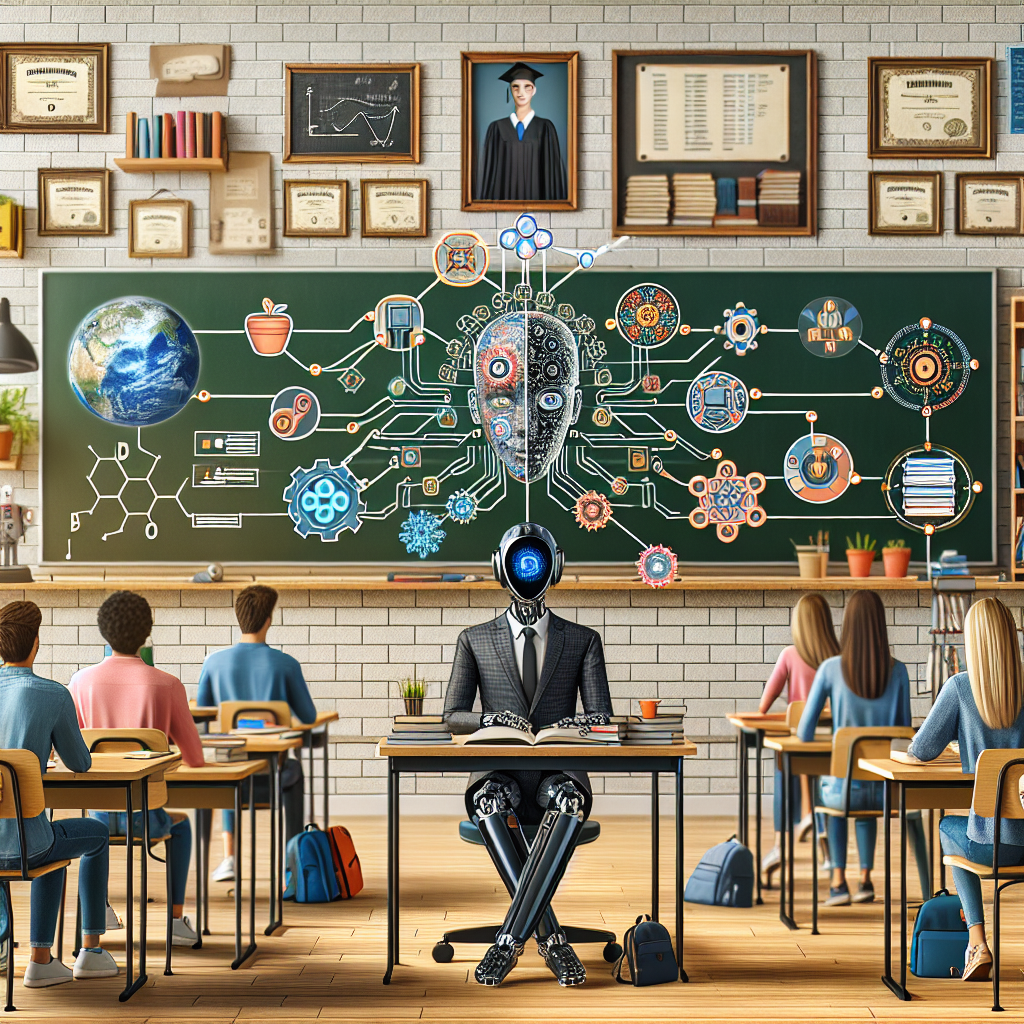Artificial Intelligence (AI) has been making waves in various industries, and education is no exception. In recent years, AI has been increasingly used in project management in education to streamline processes, improve efficiency, and enhance learning outcomes. In this article, we will explore the applications of AI in project management in education, the benefits it brings, and some frequently asked questions about this emerging technology.
Applications of AI in Project Management in Education
AI has a wide range of applications in project management in education, from automating administrative tasks to personalizing learning experiences for students. Some of the key applications of AI in project management in education include:
1. Automating administrative tasks: AI can help streamline administrative tasks such as scheduling, resource allocation, and communication. For example, AI-powered project management tools can automatically schedule meetings, assign tasks to team members, and send reminders about deadlines.
2. Personalizing learning experiences: AI can analyze data on students’ learning preferences, strengths, and weaknesses to create personalized learning plans. By tailoring educational content to individual students, AI can help improve learning outcomes and student engagement.
3. Predictive analytics: AI can analyze past project data to predict future outcomes and identify potential risks. By using predictive analytics, project managers can make more informed decisions and proactively address issues before they escalate.
4. Virtual assistants: AI-powered virtual assistants can help students and educators with various tasks, such as answering questions, providing feedback, and scheduling appointments. Virtual assistants can also help streamline communication between project team members and facilitate collaboration.
5. Automated grading: AI can automate the grading process by analyzing students’ responses and providing instant feedback. This not only saves time for educators but also provides students with timely feedback to improve their learning.
Benefits of AI in Project Management in Education
The use of AI in project management in education offers several benefits for students, educators, and educational institutions. Some of the key benefits of AI in project management in education include:
1. Improved efficiency: AI can automate routine tasks, such as scheduling and grading, allowing educators to focus on more meaningful activities. This improves efficiency and reduces the time spent on administrative tasks.
2. Personalized learning: AI can analyze students’ learning data to create personalized learning plans tailored to their individual needs. This helps students to learn at their own pace and in a way that suits their learning style.
3. Enhanced collaboration: AI-powered project management tools can facilitate collaboration among project team members by providing a centralized platform for communication, task assignment, and resource sharing. This improves teamwork and coordination among project participants.
4. Data-driven decision-making: AI can analyze large amounts of data to provide insights into project performance, student progress, and learning outcomes. This enables educators to make data-driven decisions and improve project management strategies.
5. Improved student engagement: AI can create interactive learning experiences, personalized feedback, and adaptive learning materials to engage students and enhance their learning experience. This increases student motivation and participation in projects.
Frequently Asked Questions about AI in Project Management in Education
1. How can AI help educators in project management in education?
AI can help educators in project management by automating administrative tasks, personalizing learning experiences, providing predictive analytics, and facilitating communication among project team members. This allows educators to focus on teaching and guiding students, rather than spending time on routine tasks.
2. How can AI benefit students in project management in education?
AI can benefit students by providing personalized learning experiences, instant feedback, and interactive learning materials. This helps students to learn at their own pace, improve their learning outcomes, and stay motivated throughout the project.
3. Are there any risks associated with using AI in project management in education?
Some potential risks of using AI in project management in education include data privacy concerns, bias in AI algorithms, and overreliance on technology. It is important for educational institutions to address these risks through proper data security measures, ethical AI practices, and balanced use of technology.
4. What are some examples of AI-powered project management tools in education?
Some examples of AI-powered project management tools in education include Asana, Trello, and Microsoft Project. These tools use AI algorithms to automate tasks, provide insights into project performance, and facilitate collaboration among project team members.
5. How can educators integrate AI into their project management practices?
Educators can integrate AI into their project management practices by exploring AI-powered tools, attending training sessions on AI in education, and collaborating with AI experts. By leveraging AI technology, educators can enhance their project management skills and improve learning outcomes for students.
In conclusion, AI has the potential to revolutionize project management in education by automating tasks, personalizing learning experiences, and improving collaboration among project team members. By embracing AI technology, educators can enhance their project management practices, engage students, and achieve better learning outcomes. As AI continues to advance, the possibilities for its applications in education are endless, and the benefits it brings are substantial.

